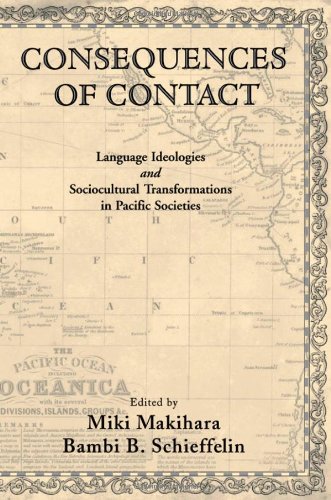Product desciption
Consequences Of Contact Language Ideologies And Sociocultural Transformations In Pacific Societies Miki Makihara by Miki Makihara, Bambi B. Schieffelin 9780195324976, 9780195324983, 9781435673168, 0195324978, 0195324986, 1435673166 instant download after payment.
The Pacific is historically an area of enormous linguistic diversity, where talk figures as a central component of social life. Pacific communities also represent diverse contact zones, where between indigenous and introduced institutions and ideas; between local actors and outsiders; and involving different lingua franca, colonial, and local language varieties. Contact between colonial and post-colonial governments, religious institutions, and indigenous communities has spurred profound social change, irrevocably transforming linguistic ideologies and practices. Drawing on ethnographic and linguistic analyses, this edited volume examines situations of intertwined linguistic and cultural change unfolding in specific Pacific locations in the late twentieth and early twenty-first centuries. Its overarching concern is with the multiple ways that processes of historical change have shaped and been shaped by linguistic ideologies reflexive sensibilities about languages and language useheld by Pacific peoples and other agents of change. The essays demonstrate that language and linguistic practices are linked to changing consciousness of self and community through notions of agency, morality, affect, authority, and authenticity. In times of cultural contact, communities often experience language change at an accelerated rate. This is particularly so in small-scale communities where innovations and continuity routinely depend on the imagination, creativity, and charisma of fewer individuals. The essays in this volume provide evidence of this potential and a record of their voices, as they document new types of local actors, e.g., pastors, Bible translators, teachers, political activists, spirit mediums, and tour guides, some of whom introduce, innovate, legitimate, or resist new ideas and ways to express them through language. Drawing on and transforming metalinguistic concepts, local actors (re)shape language, reproducing and changing the communicative economy. In the process, they cultivate new cultural conceptions of language, for example, as a medium for communicating religious knowledge and political authority, and for constructing social boundaries and transforming relationships of domination.


